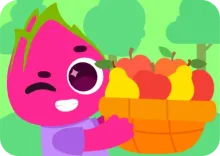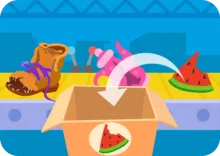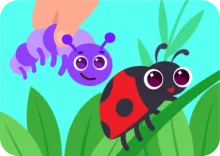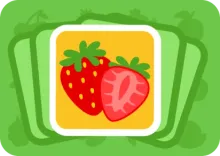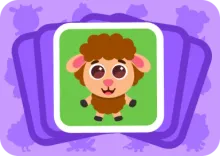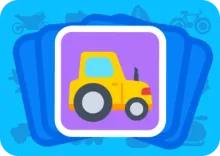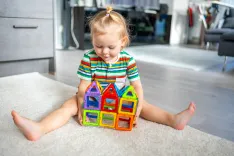Farm Games for Kids – Fun, Learning, and Creativity in a Natural Environment
Farm games bring animals, roles, and routines into pretend play kids enjoy. These ideas support storytelling, social skills, and basic learning themes while keeping activities simple for home, class, or parties.
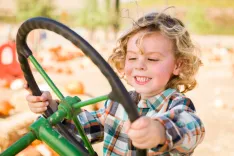
Farm games for kids to support imagination and learning
Childhood is a time of discovery, and every trip to a farm or even a simple farm-themed game can become an incredible adventure. Farm games for kids are not only a fun way to spend time but also a powerful tool for development. Games with farm animals and agricultural elements help children develop fine motor skills, expand vocabulary, and learn where our food comes from.
This article is a comprehensive guide for parents who want to find engaging and beneficial games for their children. We'll explore ideas that can be implemented without gadgets, as well as those that can be found in apps.
Why Farm Games Are So Essential for Children of All Ages?
Farming games stimulate child development in various areas, from motor skills to social skills. This is not just entertainment but an important part of the educational process.
A farm is a place where children can familiarize themselves with the real world in a playful way. Through farm games for kids, they gain invaluable practical knowledge and develop important skills that will be useful in the future.
- Development of fine motor skills and coordination. Simple actions like pouring sand, collecting toy vegetables, or feeding plastic animals excellently train fingers and hands. This directly affects the development of writing and drawing skills. Children learn to coordinate hand and eye movements, which is crucial for overall physical development.
- Learning about the surrounding world. Children learn to recognize farm animals, their sounds, and behavioral features. They discover that pigs oink and cows moo, that chickens lay eggs and cows give milk. This forms basic knowledge about the world, where food comes from, and how the natural cycle works. Such educational farm games help develop curiosity.
- Encouraging role-playing and creativity. Little ones often take on the role of a farmer, veterinarian, or combine operator. They create scenarios where they rescue a lost lamb or build a new barn. This develops imagination, empathy, and social interaction skills. Children learn to work as a team, solve problems, and express their emotions.
- Expanding vocabulary. Farm games are an excellent opportunity to learn new words related to the animal world, tools, and agricultural processes. In a natural environment, it's much easier to remember what a tractor, shovel, or barn is. Games for learning new words are also available in apps, simplifying the study of animal names, vegetables, and other terms.
- Understanding cause-and-effect relationships. Fun games for kids on a farm give understanding that every action has consequences. To get a harvest, you need to plant seeds, water them, and wait. This develops logical thinking and patience.
From an early age, little ones interact with the surrounding world, work with their hands, show imagination, and satisfy curiosity – this is the benefit of such activities.

Help your child
grow with Keiki
We’ll help you turn everyday screen time into real learning progress.
Try KeikiScreen-free farm games for kids – Gardens Instead of Gadgets
Outdoor games or simply gadget-free activities are the foundation of healthy and comprehensive development. They give children the opportunity to explore the world around them using all their senses.
Farm games for toddlers (1-3 years)
For toddlers, simple, repetitive actions that strengthen neural connections and develop basic skills are important. And, of course, the opportunity to satisfy children's curiosity!
Animal Sounds
This simple but effective game is perfect for small children. You make an animal sound, for example, "moo-oo," and the child must guess who it is (cow). Then you can switch roles. Here's a whole spectrum of development: memory, auditory perception, and imitation, which is necessary at an early age for speech development.
Treasure Hunt
Bury toy animals in a sandbox or garden, then ask the toddler to find them. Each time they find a toy, name the animal and make its sound. This game develops fine motor skills, coordination, and patience.
Find the Animal
Bad weather or no mood for outdoor walks? No problem! Hide several toy animals in the room and ask the child to find each one, naming it. This is an excellent way to train attention and memory.
Harvest Collection
If you have a garden bed or backyard, you can slightly bury carrots or beets, necessarily with tops. The toddler will pull out vegetables from which you can then cook something. If you don't want to mess with soil, tie apples, pears, and other fruits to a low bush, but so the child can reach them. Such creative farm games are very popular with small and curious toddlers.
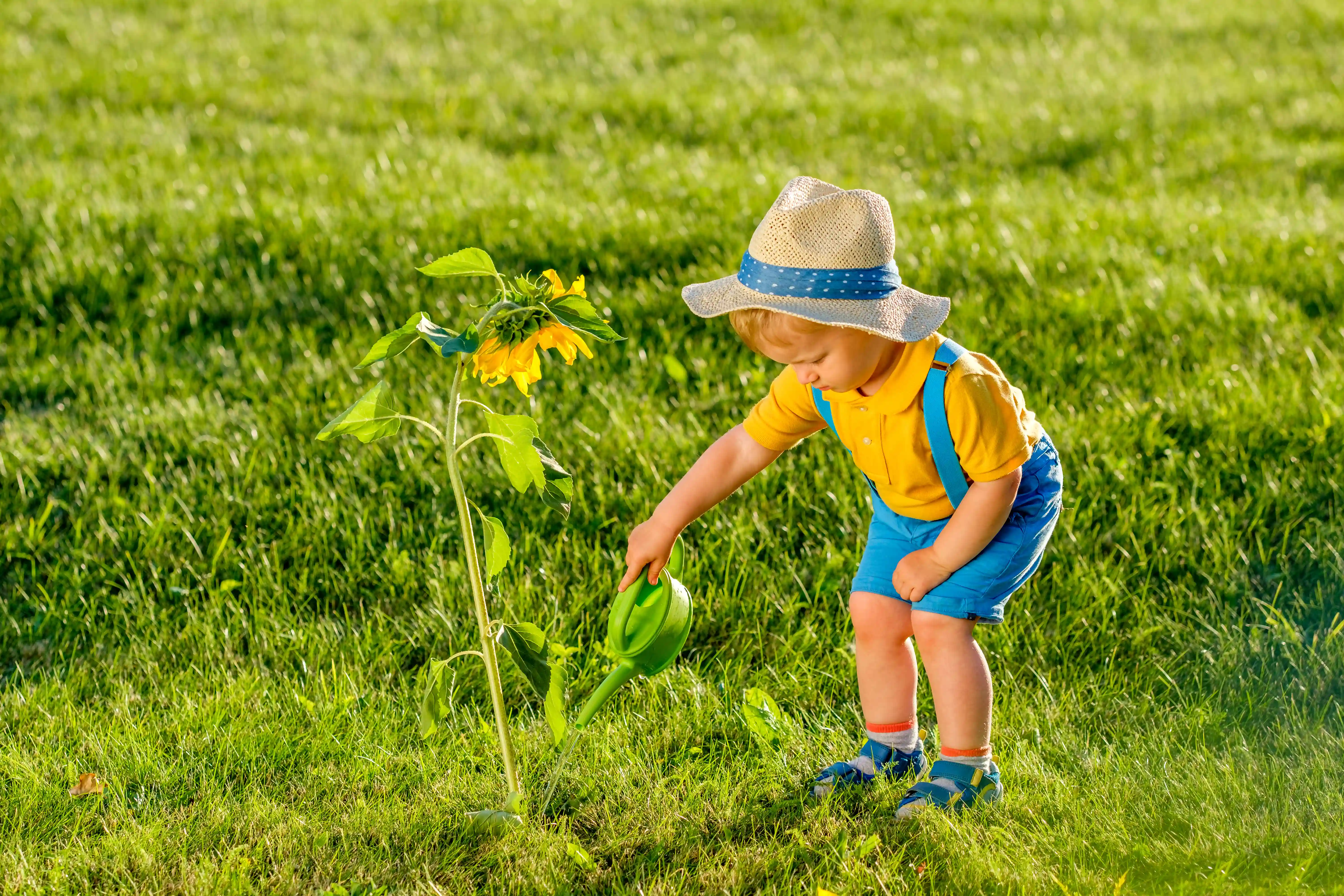
Farm games for preschoolers (4-6 years)
Older children are ready for more complex rules and role-playing games.
Farm Relay
Organize a simple relay with farm tasks. For example, carry potatoes in a spoon, run through a straw maze, or hop to the barn like a frog. This develops gross motor skills, teamwork ability, and following rules.
Farmer Says
A variation on "Simon Says" and farm animal sounds game. Simply use any variations on the farm theme: "Farmer says clap your hands," "Farmer says crow like a rooster," "Farmer says walk like a duck." This is fun, develops attention, and teaches following instructions.
Farm Bingo
Print cards with animal images and during a farm trip or even a zoo walk, mark those you see. Such educational farm games are suitable for learning animal names and training attentiveness.
Farmer's Market
A more comprehensive task. Help the child organize their own mini-market. Collect real vegetables and fruits, or use toy ones. The child can act as a seller while you're the buyer. This game helps learn counting in a playful way, teaches names of vegetables and fruits, and develops social skills. You can use toy money to make the process more realistic.
Building a Barn
Who didn't like building forts as a child? You can diversify the task by thinking up barn construction. This could be blankets and chairs if playing at home, or something more serious from boards if talking about outdoors.
Related Games in Keiki App
Interactive farm games – Calling Gadgets and Apps for Help
Digital games can be an excellent addition to active recreation, especially when you need to occupy a child during travel or in bad weather. The main thing is to choose the right, educational tasks. Such can be found in Keiki, which has educational games for farm fun.
Keiki offers an extensive library of farm-related content. The following activities can be highlighted:
- Fruits and Vegetables. An excellent harvest collection game that teaches attentiveness, reaction speed, and colors. The child needs to help collect crops of a certain color for a character to make juice from them later.
- Farm Adventures. This is a comprehensive child brain development game consisting of several cool quests with farm themes. Here you need to catch eggs from chickens of the right color and then sort them by colors for rabbits.
- Flash Cards. Keiki has entire collections of cards with vegetables, fruits, and animals. They're suitable for children of any age, developing memory and attentiveness while expanding vocabulary.
- Matching Cards. You need to find two similar cards to make a pair. This is an excellent trainer for memorization and attentiveness.
- Waste Sorting. Farm themed activities aren't just about harvesting and animal sounds. A farm or garden also involves waste recycling, composting, and ecology issues. Keiki has a game that teaches waste sorting from early childhood and taking a responsible approach to nature.
The app is completely safe, contains no advertising, and offers age-appropriate content, giving parents confidence in quality and safety.
How to Prepare for Farm Games?
Whether you're doing farm crafts for kids, want to visit a real farm, or organize a themed day at home – preparation is always the key to successful and fun recreation. To avoid surprises, follow these simple tips.
- gather a farmer's kit – small toy buckets, shovels, animal figures, miniature tractor – all this will make farm play even more engaging;
- download the app and print worksheets in advance – internet isn't everywhere and always available, so it's better to keep these things handy;
- take wet wipes, antibacterial gel, and insect spray – as much as it's fun on a farm, garden, or outdoors, hygiene shouldn't be forgotten;
- if going to a farm, discuss behavior rules with children – explain that animals should be treated carefully, not to shout or run around them, so farm animals for kids don't become a sad experience;
- clothing and shoes – choose comfortable clothes and shoes you don't mind getting dirty.
Help your child thrive with playful learning
Turn screen time into real growth with Keiki’s educational games.
Try KeikiTips for Maintaining Children's Interest (and Preserving Sanity!)
DIY farm games are beneficial and diverse, but a few more simple tips won't hurt to help you maintain interest and avoid overexertion.
- Alternate games. Change activity types every 20-30 minutes. Mix active games with calm ones, such as drawing or app games.
- Mix games. Include both group and solo tasks. This helps children learn to interact with others and develop independence.
- Use older siblings' help. If you have multiple children, ask the older one to help the younger with games. This strengthens relationships and develops responsibility.
- Don't forget snacks. Always have water and favorite snacks on hand.
- Be flexible. Don't be afraid to change plans. If a child is tired, let them rest. The main thing is enjoying the process.
Visiting a farm or simply playing farm-themed games is an excellent way to spend time beneficially. The right combination of fun and educational games will not only make recreation unforgettable but also help your child's development.


